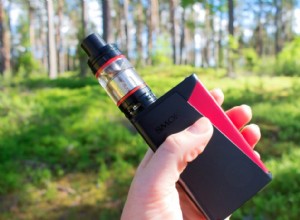
الحصول على مساعدة لإدمان الهيروين هو خطوة صحية. لم يفت الأوان أبدًا لطلب العلاج والتعافي. بغض النظر عن العمر ، أو مدة الإدمان ، أو المواد التي كنت تتعاطاها ، فمن الممكن أن تبحث عن العلاج وتبدأ في الاعتدال.
ما العلاج المطلوب البحث عنه
عند النظر إلى أنواع العلاج ، من الأفضل أن تبدأ بتقييم. اعتمادًا على شدة إدمان الهيروين ، يمكن لمركز العلاج تقديم المشورة للمرضى الداخليين / المقيمين أو العيادات الخارجية المكثفة أو السكن الانتقالي أو العيادات الخارجية.
تقترن هذه عادةً بالبرامج التقليدية المكونة من 12 خطوة والتركيز الروحي وخطط العلاج الفردية والعلاج الجماعي وإزالة السموم.
كل مرفق علاجي له تركيز متفاوت أثناء علاج الإدمان [1]. بعض البرامج شاملة من حيث التركيز ولديها برمجة تعمل مع عملية الصحة والشفاء بشكل عام.
تستخدم بعض هذه البرامج علاجات غير تقليدية لتعزيز التعافي. تسمح البرامج القائمة على الإيمان للمشاركين بالتركيز على تطوير وتعزيز إيمانهم أثناء التعافي من الإدمان.
تعمل البرامج المعرفية على مساعدة الفرد على تحديد أنماط التفكير السلبية والتفكير من نوع الإدمان وتثقيف وتعزيز معتقدات التفكير الصحي والعمليات من خلال أنواع مختلفة من العلاجات التقليدية.
تمكّن برامج المساعدة الذاتية الأفراد عادةً من حضور الاجتماعات ومجموعات دعم الأقران لاكتساب مهارات الرصانة والتأقلم.

غالبًا ما تكون إزالة السموم جزءًا من عملية علاج الإدمان. Some facilities will offer in-house detox but it depends on their treatment level provisions. However, detox is normally required and essential when entering treatment for heroin addiction.
Having 24-hour support during the withdrawal process in a safe environment is important to prevent drug use to curb the withdrawal symptoms.
Some detox programs will offer medically-assisted detox and holistic rehab. When a person decides to detox, it can take days to weeks to be fully detoxed from substances. It can be described as cleansing the body of all traces of addictive substances or toxins [2].
Heroin can cause painful withdrawal symptoms, and a person can have serious withdrawal symptoms such as seizures, hallucinations, and other reactions.
It is not recommended to try to detox on your own, but to seek detoxification from a treatment facility or hospital where there is support.
It’s Never Too Late
Help is available for anyone who seeks it. It does not matter a person’s past, struggles, drug use, or what experiences that person has been through. An individual can seek treatment alone or with the help of family and friends,
In the recovery process, therapy is beneficial to uncover underlying issues for heroin use [2]. Psychotherapy, talk therapy, group therapy, and if needed, family therapy is all used to help understand the addiction, identify triggers, and promote healthy thinking and behaviors.
Other mental health issues can be addressed as well, such as depression, anxiety, bipolar, or post-traumatic stress disorder.
Cognitive Behavioral Therapy (CBT), Dialectical Behavioral Therapy (DBT), Behavioral Therapy, and group therapy are some of the treatment options used within the sobriety process.
These can aid in identifying and correcting unhealthy belief systems, working on skill building, relationship repairs, and gaining support from others who are in similar situations.
Other issues such as self-esteem, interpersonal relationships, and positive outcomes of sobriety are addressed within the therapeutic process. Working on skill building, and job searching is also done during the treatment process.
Getting Support
One of the main things that someone who is addicted to heroin needs is support with sobriety [3]. Giving encouragement, support, and love will help the person know that they are able to get through their treatment.
In 2012, over 100,000 individuals were admitted to treatment facilities for heroin use [3]. One main effective treatment for heroin addiction is methadone.
During detox therapy, certain medications can be used to help with the withdrawal symptoms. Both methadone and buprenorphine are used to help in the detox process.
Contingency management therapy is also a way to support heroin addicts in treatment. It is a type of reward therapy that encourages a drug-free environment.
Narcotics Anonymous (NA), is a non-profit organization that was created for recovering addicts and is based on a 12-step program [3].
NA will meet independently from facilities and are there to offer support and guidance to those wanting to live addiction free. These programs are recommended to be used as a complement to other treatment and therapies.
Heroin is extremely addictive, and in 2013 almost 5 million individuals in the U.S. alone reported having tried heroin at least once [3]. Once heroin is in the body, it rapidly enters the brain and has both short and long-term effects.
Short-term effects include feeling flushed or hot, dry mouth or lack of saliva production, nausea, severe itching, and drowsiness. Long-term effects can be physical dependence, collapsed veins, bacterial infections, and arthritis symptoms [3].
Getting help can occur at any stage of the addiction process, and it is never too late to get help.
How Do I Know I am Addicted?

If you feel that you are unable to stop heroin use, spend increasing amounts of money on buying heroin and foregoing necessities, you may have an addiction to heroin.
Other signs of addiction include loss of interest in hobbies or activities, mood swings or irritability if not on a substance, and constantly thinking about your next high.
If you feel that you are addicted to heroin, and need help, seek treatment.
Most facilities can do assessments over the phone and have 24-hours a day access to staff who can help assess your best treatment needs. Help is possible from heroin addiction.






